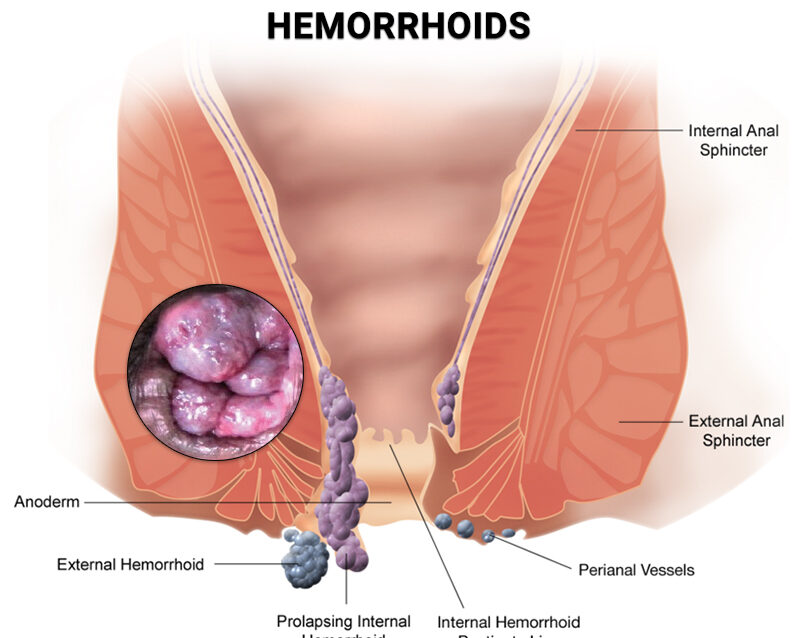
Hemorrhoid
Hemorrhoid Treatment using lasers is a medical procedure that leverages laser technology to address hemorrhoids, which are swollen and inflamed veins in the rectum and anus.
Target Condition: Hemorrhoids are characterized by inflamed and swollen veins in the anal and rectal area, causing discomfort, bleeding, and itching.
Objective: Laser treatment aims to reduce the size of hemorrhoids, alleviate symptoms, and promote healing.
Application
- Minimally Invasive: Hemorrhoid treatment with lasers is typically a minimally invasive procedure.
- Direct Application: A specialized laser device is used to emit focused laser energy directly onto the hemorrhoidal tissue.
- Photocoagulation: Laser energy is absorbed by the hemorrhoidal tissue, causing photocoagulation.
- Sealing and Shrinkage: This process leads to the sealing of blood vessels and the shrinking of the hemorrhoidal tissue.
- Infrared Coagulation (IRC): Uses infrared light to coagulate the blood vessels feeding the hemorrhoids, resulting in shrinkage.
- Laser Hemorrhoidectomy: Involves the precise removal of hemorrhoidal tissue using laser energy.
- Local Anesthesia: The procedure is often performed with the patient under local anesthesia.
- Outpatient Setting: Laser hemorrhoid treatment is commonly done on an outpatient basis.
- Minimized Discomfort: Laser procedures typically result in less postoperative pain compared to traditional surgical methods.
- Quicker Recovery: Minimally invasive techniques generally lead to a faster recovery and reduced downtime.
- Precision: Laser technology allows for precise targeting of hemorrhoidal tissue, minimizing damage to surrounding areas.
- Suitability: Laser treatment is suitable for certain types and sizes of hemorrhoids.
- Patient Health: The overall health and medical history of the patient are considered when determining candidacy.
- Recovery Period: Patients may experience minimal discomfort or bleeding after the procedure, but this often subsides quickly.
- Lifestyle Adjustments: Recommendations for dietary and lifestyle changes may be provided to promote healing and prevent recurrence.
- Initial Consultation: A consultation with a gastroenterologist or colorectal surgeon is crucial to assess the severity of hemorrhoids and determine the most appropriate treatment.
- Follow-Up: Follow-up appointments may be scheduled to monitor healing and address any concerns.


